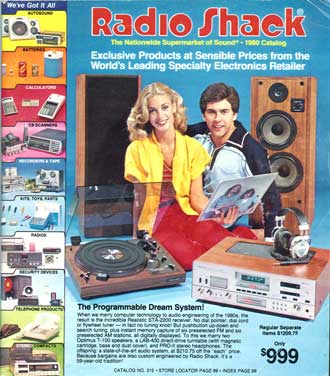 Who needs hackers? It turns out that all that personal data stored in US corporate servers can be sold off to the highest bidder anyway.
Who needs hackers? It turns out that all that personal data stored in US corporate servers can be sold off to the highest bidder anyway.
Radio Shack, which has been collecting customer data since the 1980s, is about to sell the lot to raise money to pay off some of its debts.
A list of RadioShack assets for sale includes more than 65 million customer names and physical addresses, and 13 million email addresses. The asset sale may include phone numbers and information on shopping habits as well.
Standard General, a hedge fund and RadioShack’s largest shareholder has bought the database but a bankruptcy court still has to approve the deal.
Needless to say some people have a problem with this and some customers have gone to court to block the sale.
As Bloomberg points out, Texas Attorney General Ken Paxton has argued that selling the data would be illegal under state law. Texas doesn’t allow companies to sell personal information in a way that violates their own privacy policies, and signage in RadioShack stores claims that “We pride ourselves on not selling our private mailing list.” Paxton believes that a data sale would affect 117 million people.
AT&T also wants RadioShack’s data destroyed for competitive reasons. AT&T doesn’t think RadioShack is entitled to the personal information it collected from wireless sales, and may be concerned that the data might fall into another carriers’ hands.
But there is precedent for allowing customer data to be auctioned off in bankruptcy proceedings. In 2011, the Federal Trade Commission allowed Borders to auction personal data if the same privacy policy applied, the buyer was in the same line of business, and the data was sold alongside other assets.
Standard General, which plans to keep some RadioShack stores open, may try to argue that it’s putting the data to similar uses.





